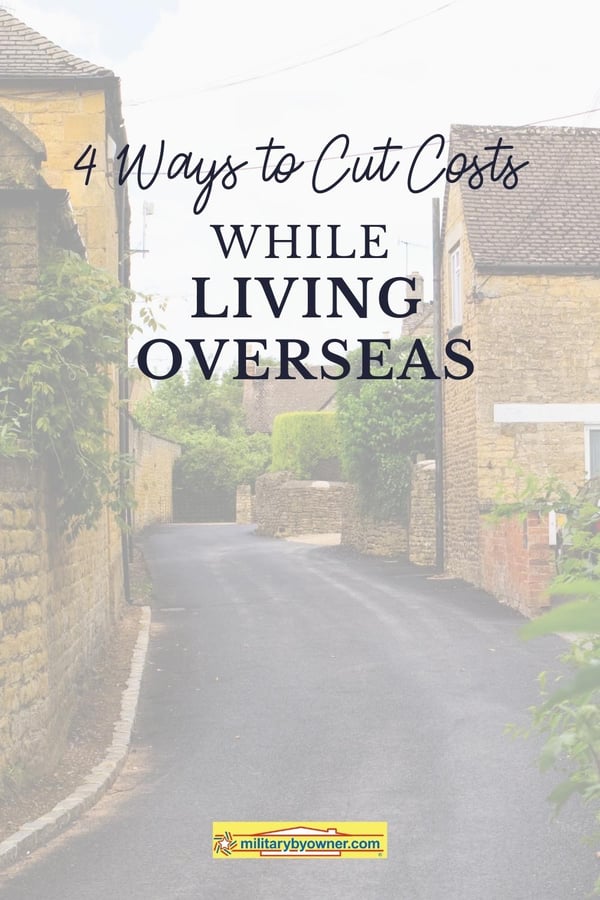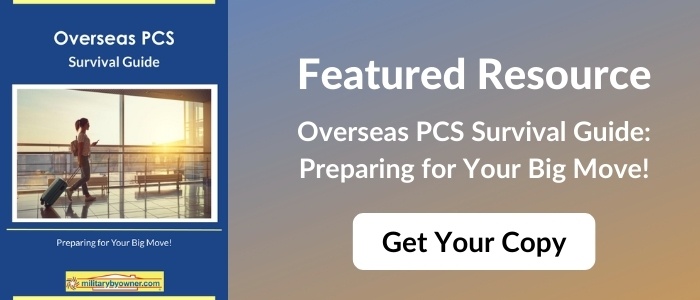4 Ways to Cut Costs While Living Overseas
Moving overseas is a fun adventure, and with every adventure comes changes to your family’s budget. Often, those changes include trying to save money. You might be cutting costs to fund your travel, to offset higher costs, or to accomplish some goal when you get back to the United States. Regardless of your reasons, there are plenty of ways to trim your budget while living outside the U.S.

1) Eat like a local.
Groceries are one of the most flexible parts of any food budget. It’s easy to overspend, or even splurge intentionally, but it is also relatively easy to cut back. One of the best ways to do that is to eat like a local.
Stephanie Montague is a world traveler, MilitarybyOwner writer, and the founder of the Poppin’ Smoke blog. She advises that you explore the options off base.
"Don't assume everything is less expensive on base. In many cases, local fruits and vegetables (when in season) are much cheaper and fresher than at the commissary. Also, off-base restaurants with local cuisine are often less expensive than many on-base eateries."
 Photo from Canva
Photo from Canva
2) Watch your utility and other housing expenses.
If you’re overseas with the military, and living off post, your Overseas Housing Allowance will reimburse you up to the OHA limit for your pay grade and dependency status. It’s very tempting to spend all that OHA. Before you do, think about the cost of utilities, furnishings, and any maintenance that will be your expense (like cleaning.)
While you will get a monthly utility allowance, it may not be enough to cover the costs of heating or cooling something large or inefficient. The monthly utility allowance is paid to you whether you spend it all or not. A smaller or more efficient house will mean less money paid for utilities, which means more money in your pocket. It may also reduce the temptation to hire help for yard work or cleaning.
As a bonus, local cleaning products are usually formulated for the water type and the surfaces typical to local housing. So they may work better than American options.
3) Find the most efficient way to exchange money.

Photo from Shutterstock
While living overseas, you’re going to need a way to get U.S. dollars converted into the local currency. Do some research to figure out the current best way to do that based on your location and your options. It might be easiest to take money out of your U.S.-based bank account via the ATM, or use a currency exchange service like XE. Another option is to use a multi-currency account offered by a company like Wise.
If you use the ATM option, be sure you have a card with low or no foreign transaction fees, or take out larger amounts less frequently to reduce the number of fees you’ll pay. Keep in mind that a local bank on your installation might be convenient, they aren’t always the best option for saving money.
4) Consider your transportation costs.  Image from Canva
Image from Canva
The cost of transportation is typically in the top three expenses in a military family’s budget. (The other two are housing and food; civilian families also have to deal with high health care expenses.) Be sure to calculate all the costs of your transportation into your spending plan, and think creatively about how to cut back. That amazing house in a small town away from other Americans might be awesome, but it will be less awesome if you’re spending $1,200 a month on gasoline. (I say this from personal experience.)
Consider buying a smaller, local car instead of driving a gas-guzzling American-made vehicle. If possible, living overseas is a great time to experiment with having just one car for the family. Be sure to factor in the cost of insurance, as it can be quite high when you are outside the U.S.
The ways to save money when you’re living overseas might be different from the ways that you save money within the U.S. But there are lots of opportunities. Use this unique time to change the way you spend, and you’ll have money left over for other goals!





